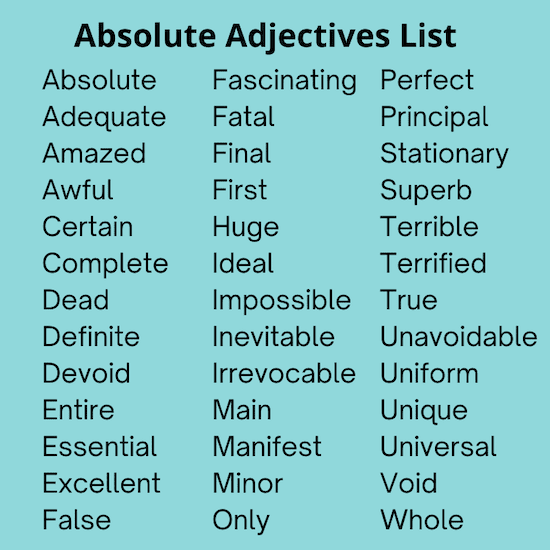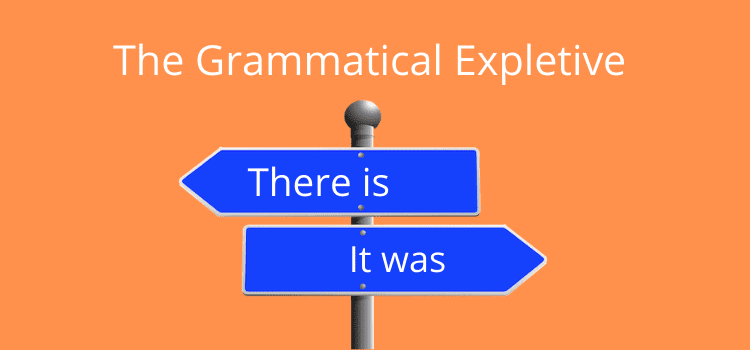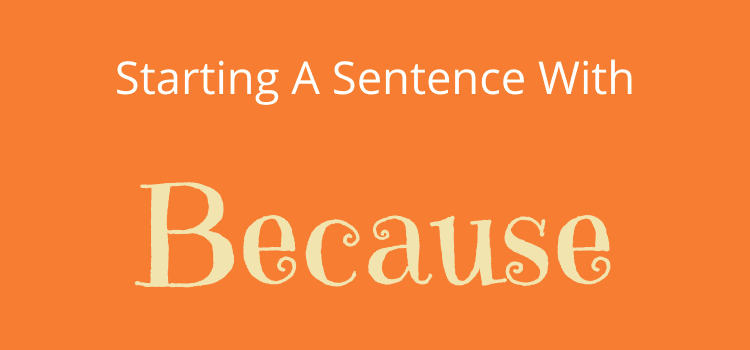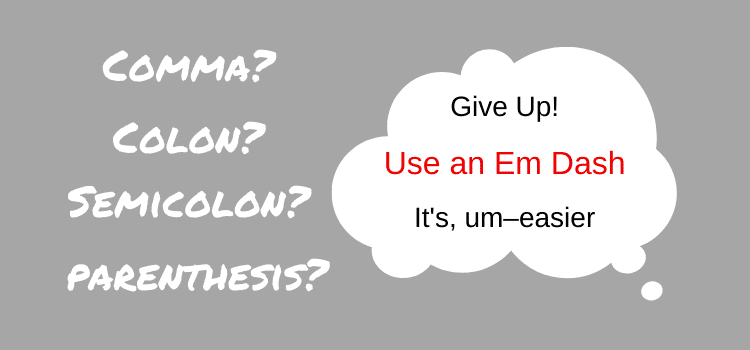
Absolute adjectives, such as unique, perfect, or dead, cannot typically be intensified or compared. These types of extreme adjectives are classed as incomparable, ultimate, or absolute.
They relate to the superlative degree, which means the best or worst, or most or least of something.
Most style guides recommend that you should not modify extreme adjectives. But you can quantify some of these adjectives in certain situations.
Sometimes, it’s very open to your artistic interpretation or poetic license.
The difference between absolute vs. relative adjectives
Galit W. Sassoon and Assaf Toledo wrote an interesting case study about adjectives.
It’s quite a technical read, but they explain the four forms of gradable adjectives in one section.

As you can see from the diagram above, there are (a) adjectives that you can modify with both minimum and maximum modifiers.
Then there are those ( b and c) that can only use minimum or maximum.
Finally, it shows (d) how extreme adjectives cannot take a modifier.
In the example, full is absolute because something cannot be slightly or perfectly full.
Luckily, there are not many adjectives that fall into this last category. Here’s a list of adjectives that are usually absolute.

You might find longer or shorter lists, but the graphic above lists the most common extreme closed adjectives.
Can you grade an absolute adjective?
In most cases, the answer is no.
It’s not possible to say that my pot plant is very dead. Nor can you say that my pot plant is deader (or more or less dead) than your pot plant.
Dead is a 100% state, so there is no way to modify it or compare it to say something is more or less dead.
However, there are intensifying adverbs that you can use that reinforce the notion of total or absolute. These include really, completely, absolutely, totally, entirely, and utterly.
They all say that something is absolutely 100%.
So, in this case, you could say that my pot plant is completely dead.
When is something unique?
Of all the extreme adjectives, unique is one that is open to question.
Can you grade it to say something or someone is very unique?
Here are three definitions according to the New Oxford American Dictionary.
unique | juːˈniːk |
adjective
being the only one of its kind; unlike anything else.
(unique to) belonging or connected to (one particular person, place, or thing)
particularly remarkable, special, or unusual.
It’s the last definition that differentiates what unique can mean. In this case, you can say that someone instead of something is unique.
Using this sense, you might be saying that someone is unusual, strange, special, or perhaps weird. These adjectives can then be graded, compared, or modified.
So it’s possible to say; he’s a little bit unique, or she’s more unique than you realize.
Like so many aspects of grammar, there are adjective rules, exceptions, and instances open to interpretation.
Do you have a poetic license?
There’s an apt explanation by Merriam-Webster about absolute adjectives.
These words have narrow applications and often name a quality that does not exist in degrees. They are rarely used in the comparative or superlative, but this is a consequence of logic, not of grammar.
It also gives two classic examples.
“You would oblige me by bringing your very excellent field glass.”
—Silver Blaze
“Your advice is very excellent, Miss Harrison.”
—The Naval Treaty
When it comes to how you use them, applying logic or even imagination can open the door to different options.
One of the most quoted phrases is from the Preamble to the U.S. Constitution.
“We the People of the United States, in order to form a more perfect union…”
Another is from a literary classic.
“Toad Hall,” said the Toad proudly, “is an eligible self-contained gentleman’s residence, very unique,” –The Wind in the Willows, 1908 – Kenneth Grahame
The adjective, pregnant like dead, is usually absolute.
However, you see the word modified quite often for different impacts.
Look at me; I’m more pregnant than you!
When I saw her, wow, I was surprised because she was so very, very pregnant.
So yes, it is possible to modify or compare extreme adjectives. But you need to make sure your logic works.
Summary
Yes, the rule is that you should never modify, compare, or grade absolute or extreme adjectives.
But that is not always the case. It’s what makes writing such an adventure sometimes.
You are in charge, so you make the decisions.
That’s what makes you very unique!
Related reading: Is The Least Worst An Acceptable Phrase In Writing?
Share This Article



This justification of the qualification of absolute adjectives, e.g. ‘unique’ and ‘dead’, is dismaying. The english language has evolved over time to cope with ever changing knowledge, culture and customs. This evolution has occurred naturally and ‘correct’ english is determined by popular usage. This has led to the acceptance of some changes that have occured through ignorance.
It is illogical to qualify absolute adjectives. There is a clear boundary between ‘unique’ and ‘not unique’ and when people qualify the absolute they are trying to indicate the proximity of that boundary.